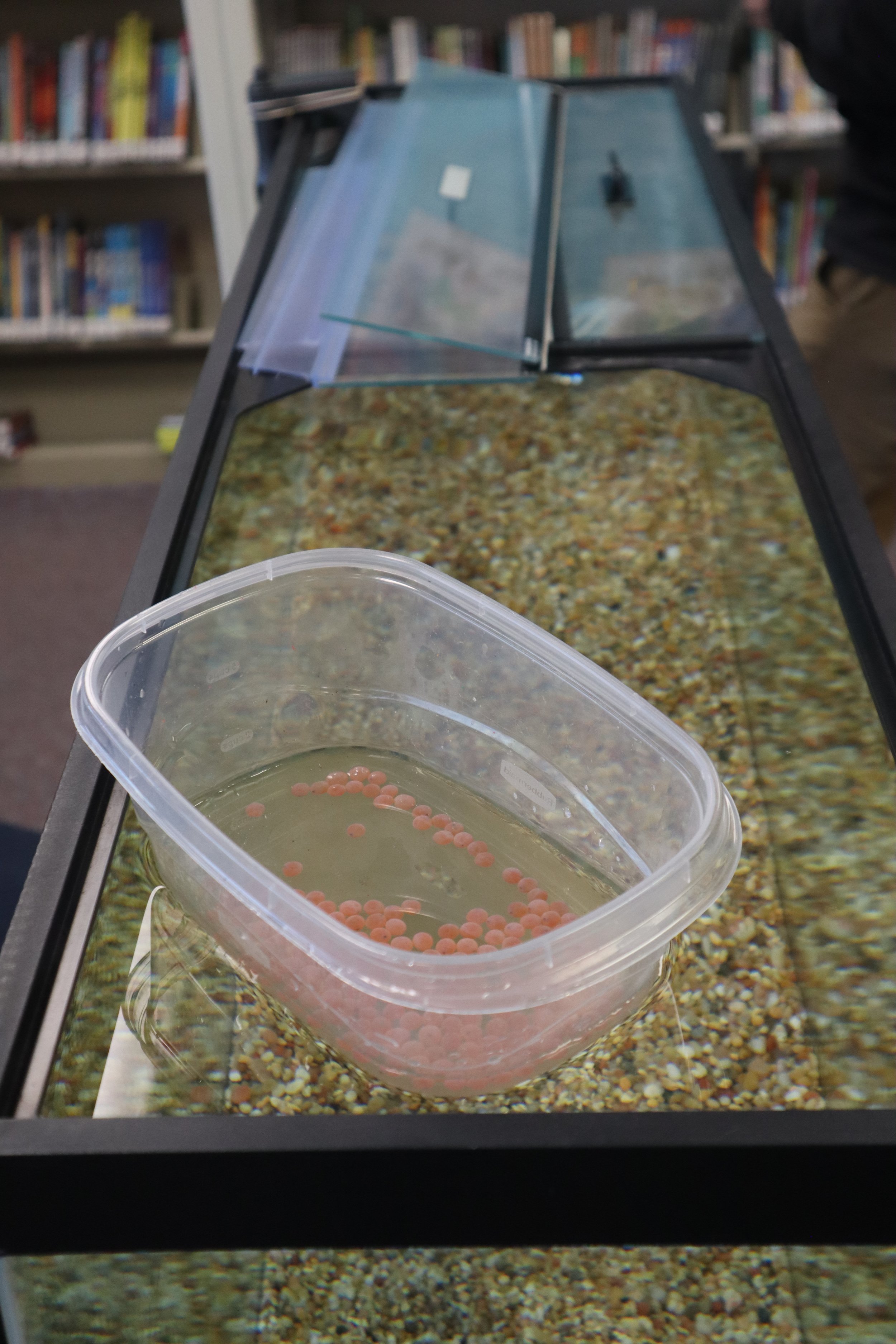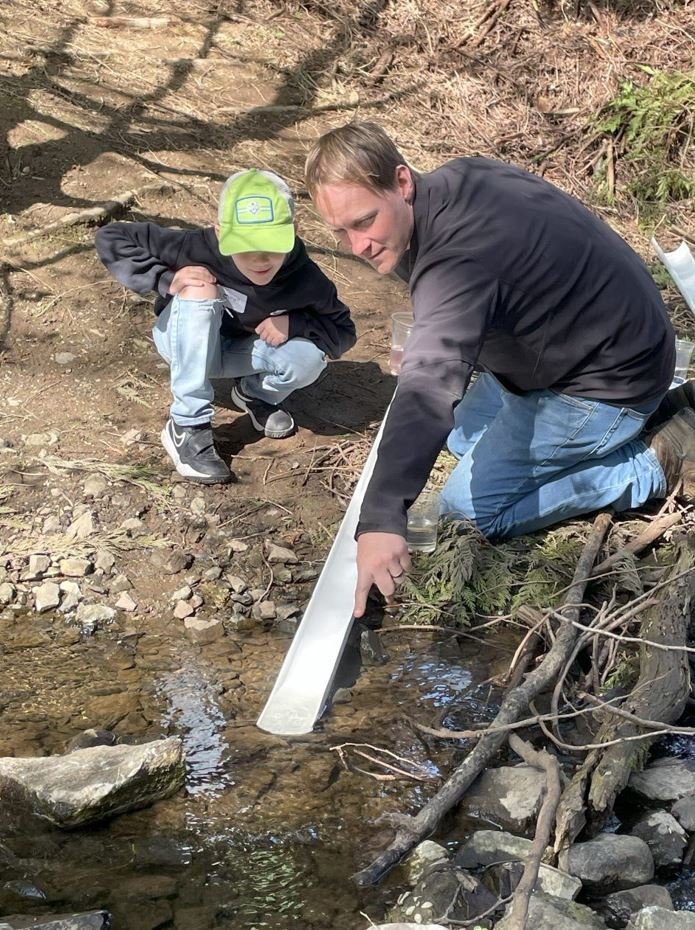By Education Program Coordinator, Grace Maxa
Just like that, the summer is here—and with it, another successful year of Students for Salmon comes to a close! Over the past nine months, fourth graders across Whatcom County have ventured outside in rain, sunshine, chilly mornings, and breezy afternoons, engaging with nature and learning through place-based education.
For over 20 years, the Students for Salmon program has evolved to meet students where they are. This school year alone, NSEA led nearly 80 field trips for more than 1,800 students from 32 schools throughout Whatcom County. Each class studied a local salmon-bearing stream near their school. Many students already had personal ties to these places—sharing stories like, “I come here with my dad to go fishing!” or “My dog loves this park too!” Others were visiting these natural areas for the very first time.
The experience begins in the classroom, where an NSEA educator leads an engaging and interactive lesson on salmon ecology. But it’s the outdoor field trips where the program truly comes to life.
When students arrive at their field site, the excitement is palpable. They rotate through three educational stations during the day. At the macroinvertebrate station, students discover tiny aquatic insects that both indicate water quality and serve as food for salmon. The native plant station turns students into detectives, as they identify local vegetation—both native and invasive—and share their findings with their group. And the water quality station is always a highlight. Here, students conduct scientific tests to measure stream health, often erupting in delighted “scientist laughs” that echo around the parks as students watch their teacher mix up chemicals to test for dissolved oxygen in the stream.
In every session, we work to ensure all students feel welcome and supported. Many students are bilingual or English language learners, so we provide materials in both Spanish and English and use translation devices when needed1. In one memorable moment, a student identified a leech during the macroinvertebrate investigation. When the educator translated the word into the student’s native language, the student lit up with recognition and excitement, exclaiming that leeches “sometimes stick to people and animals!” It was a joyful connection—bridging language, curiosity, and the natural world.
Each field trip ends with a student-led restoration project to improve the health of the riparian zone. Whether they’re pulling invasive plants or planting natives, their pride and enthusiasm are unmistakable. It’s heartening to see young people so passionate about restoring salmon habitat and making a tangible impact on their environment.
We hope these hands-on experiences are ones students will carry with them throughout their educational journeys resulting in a deep sense of belonging—to their class, their community, and the natural world.
We are deeply thankful to the 80 dedicated teachers who made this year possible, and to our generous funders who continue to support this transformative program.
1NSEA is always looking for ways to better connect and create an environment of belonging with everyone throughout Whatcom County. We are looking for volunteers to translate online materials from English to another language – specifically Spanish, Ukrainian, and/or Punjabi.








